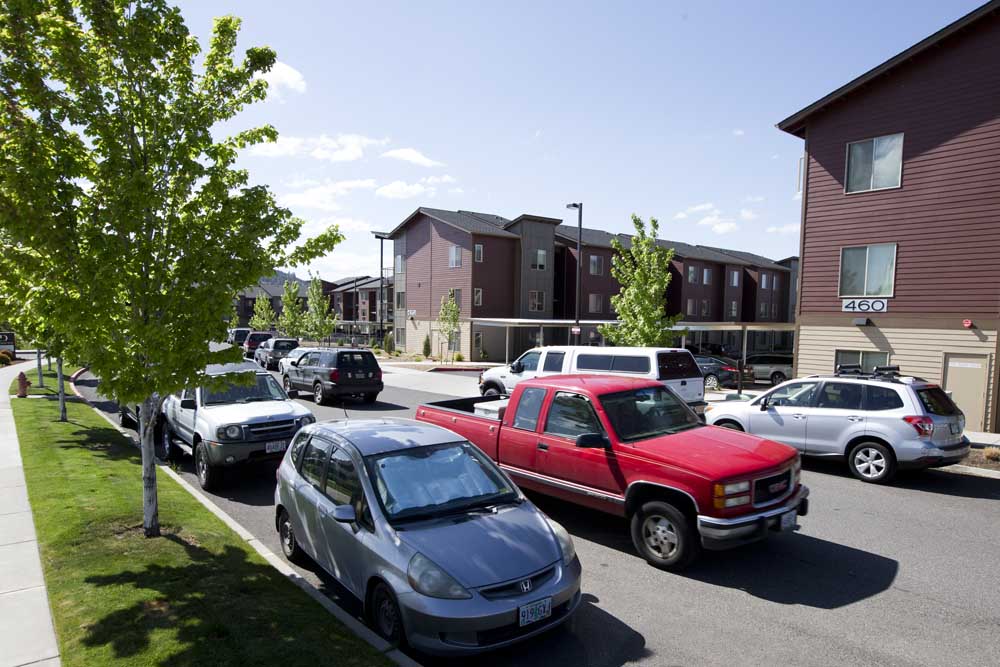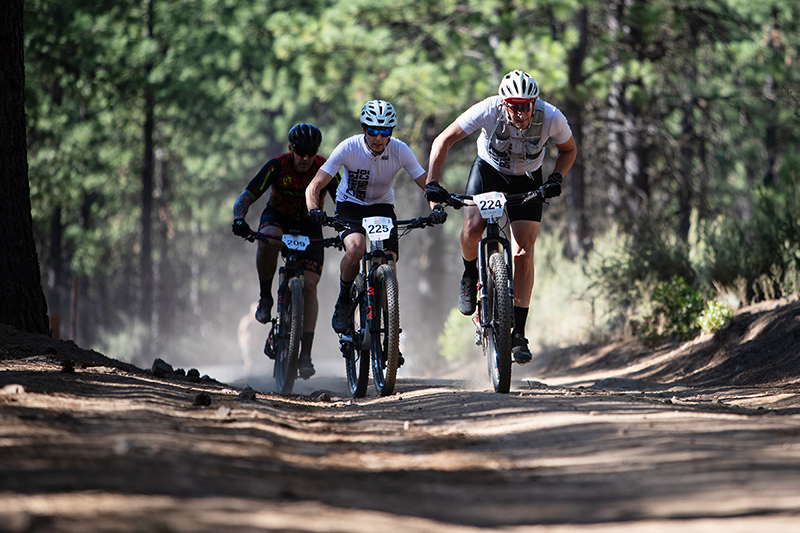Proposed apartments spark debate over parking
Published 12:00 am Tuesday, May 22, 2018

- In this May 22, 2018, some tenants park on the street at the Bellevue Crossing apartment complex near U.S. Highway 20 east of NE 27th Street.
Bend’s far east side is the last place one would expect competition for on-street parking, but apartment resident Bethany Lang said it can be pretty intense.
She and her husband each have a car, but they have only one assigned spot in their complex, which is near Worthy Brewing Co. Customers of the brew pub, which sits next to U.S. Highway 20 east of NE 27th Street, take up the on-street spaces in the evening, she said. “When you get off work, there’s no place to park.”
Trending
The city of Bend requires 11⁄2 parking spaces for each two-bedroom apartment in Lang’s neighborhood, and the standard is lower in west-side areas with mixed-use zoning: one space per unit. So what will happen if developers carry out plans for close to 450 more apartments on the west side?
Portland researcher Robert McCullough thinks the idea that biking, walking and buses will absorb the difference between available parking and tenants is a fantasy.
“Unfortunately or fortunately, we live in a world where people do show a preference for having a car,” he said.
McCullough, who is an energy researcher, began studying Portland’s “aspirational planning” as a side project. Tracking annual vehicle registrations and population in Multnomah County, he said over the past five years the growth in car registrations has outpaced population increase, and it coincides with a growing economy.
Deschutes County is showing a similar trend. The population has grown 12.6 percent since 2013 to 186,875, while the number of registered passenger vehicles has increased 18.5 percent to 193,105, U.S. Census and Oregon Department of Transportation records show.
McCullough thinks Oregon should stop letting builders “export the problem” to their neighbors, but the trade-off might be less housing. Bend reduced the parking standard to one space per unit in mixed-use zones in order to expand its urban growth boundary, which opened land to thousands more homes.
Trending
Developers are only beginning to test Bend’s policy against reality with planning underway for more than 200 apartments on the former site of Ray’s Food Place on Century Drive and another 181 on Colorado Avenue. The latest proposal is for 64 units on Chandler Avenue, near Oregon State University-Cascades.
“We’re really sensitive to how in-demand parking is in that area,” said Chris Looney, partner at Paradigm Properties of Eugene, which owns the Chandler Avenue project.
Looney expects that some residents of the Chandler Avenue building won’t own cars, but he also recognizes that inadequate parking makes it harder to draw tenants. So instead of counting four on-street spaces toward meeting the city’s standard, the Eugene developer will provide 66 spaces on its property.
Paradigm took a similar approach when building Bellevue Crossing, near Worthy Brewing on the east side. The city required 1811⁄2 spaces for Bellevue’s 153 one-bedroom and two-bedroom apartments.
Paradigm created 192 parking spaces, just 18 shy of the 210 bedrooms in the complex.
Each apartment has an assigned parking space, and tenants can pay a monthly fee for an extra space in the lot, or in a garage, said Julie Klatt, a Bellevue resident. She and her boyfriend pay extra for a second space, but she’s noticed a lot of competition for the on-street spaces.
To Klatt, a Sisters native who moved to Bend from Kauai, dealing with parking shortages is just a fact of city life.
“Maybe sometimes this business wishes there was more parking,” she said, gesturing toward Worthy. “To me it’s not a big deal.”
Lang also lives in Bellevue Crossing, and she admits that as a Utah native, she’s used to ample parking. Could people ditch their cars if walking or biking were more convenient?
“This is kind of a tough town,” she said. “You need a vehicle to get to the mountains.”
—Reporter: 541-617-7860, kmclaughlin@bendbulletin.com








